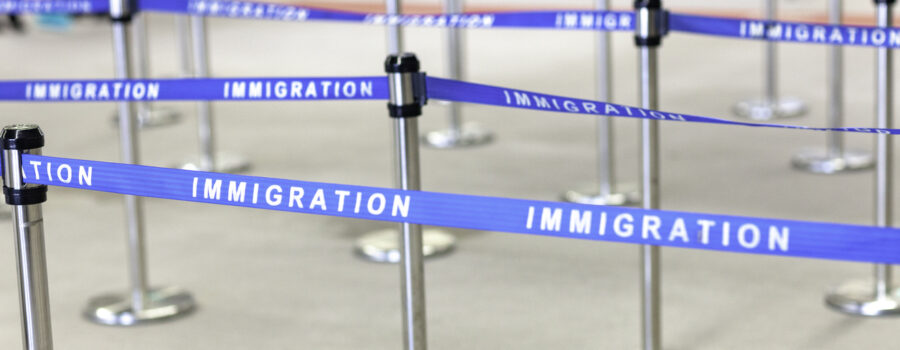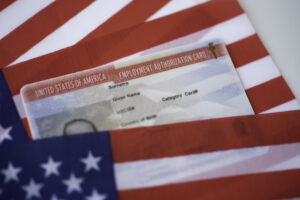Last Updated on December 2, 2022 by Anda Malescu
H-1B Visa Changes: New processes and prevailing wage policies
The H-1B temporary work visas for foreign nationals with a U.S. bachelor’s degree or higher or foreign equivalent, is used by U.S. companies to temporarily hire foreign workers.
In addition to President Trump’s Buy American and Hire American Order, on October 8, 2020, the U.S. Department of Labor (DOL) and the U.S. Department of Homeland Security (DHS) promulgated two interim final rules – Strengthening Wage Protections for the Temporary and Permanent Employment of Certain Aliens in the United States (DOL Rule) amending the regulations governing permanent labor certifications and Labor Condition Applications to incorporate changes to the computation of prevailing wage levels and Strengthening the H-1B Nonimmigrant Visa Classification Program (DHS Rule) revising the definition of “Specialty Occupation.”
On January 14, 2021, DOL issued a final rule adopting with changes the DOL Rule published on October 8, 2020 amending the regulations governing permanent labor certifications and Labor Condition Applications to incorporate changes to the computation of prevailing wage levels. This DOL final rule on computation of prevailing wage levels is scheduled to take effect on March 15, 2021 but may be delayed until May 14, 2021.
Moreover, on November 2, 2020, USCIS published a proposed rule entitled Modification of Registration Requirement for Petitioners Seeking to File Cap-Subject H-1B Petitions that seeks to replace the current random H-1B selection process with a new wage-based selection process which would prioritize the selection of H-1B registrations based on employers who pay the highest wages. USCIS has pushed the effective date of this rule that creates a wage-based selection process for H-1B applicants to December 31, 2021.
It is clear then that the U.S. H-1B Visa Program is entering a new era with DHS, DOL and USCIS issuing final rules and proposing new rules as of 2020 to fundamentally change decades of requirements for the H-1B program, including new prevailing wage levels.
These new rules in turn make it more difficult for skilled foreigners to work in the United States and the U.S. may become ultimately unattractive for these skilled foreign workers because of the new legal obstacles that are being created.
The current status of the H-1B visa program including Fiscal Year 2022 (H-1B FY 2022)
The H-1B is a temporary visa of the United States government that allows U.S. employers to sponsor foreign citizen to work in the United States in a specialty occupation, or perform services of exceptional merit and ability relating to a Department of Defense (DOD) cooperative research and development project, or work as a fashion model of distinguished merit and ability.
According to the U.S. immigration law, in order to work in a specialty occupation, a foreign worker must have a bachelor’s degree or higher from a U.S. or foreign university in a specific specialty. Moreover, for an H-1B job position to be considered a specialty occupation, the sponsored position must meet certain criteria.
The first step in the H-1B application process requires the U.S. employer to confirm on a Labor Condition Application (LCA) filed with the U.S. Department of Labor, that the employer will pay the H-1B worker a wage that is no less than the wage paid to similarly qualified workers or if greater, the prevailing wage for the position in the geographic area in which the H-1B worker will be working.
The prevailing wage can be determined based on an independent wage survey, a collective bargaining agreement or by filing a request to the National Prevailing Wage Center (NPWC). In determining the prevailing wage, the Bureau of Labor Statistics provides at least 4 levels of wages proportionate with experience, education, and the level of supervision.
If the LCA is certified by the U.S. Department of labor, then U.S. employer can file a petition with USCIS on behalf of the foreign worker requesting a H-1B, H-1B1, or E-3 visa status.
The future of the H-1B visa program
The DOL Rule issued on October 8, 2020 proposes to increase the 4 wage levels of the U.S. Bureau of Labor Statistics which will result in a wage increase of approximately 60 to 150% for entry-level positions that U.S. employers have to pay to their foreign workers.
For example, according to a research done by the American Action Forum a software developer who is paid an entry level salary of approximately $800 per week under the current system will increase to about $2,000 when the rule goes into effect in 2021. Once in effect, this DOL Rule will harm U.S. companies who need foreign workers to operate and compete in today’s global economy and will especially hurt the small businesses, start-ups and non-profit organizations and hinder the economic recovery of the United States during COVID-19.
Moreover, the DHS Rule that was also issued on October 8, 2020 clarifies what a special occupation is for the purpose of the H-1B visa program. According to the rule, for a position to be a special occupation there must be a direct relationship between the required degree fields and the duties of the position.
If a bachelor’s degree in any or various different fields is sufficient to qualify for the position, the position is not considered a specialty occupation. Similarly, if a general degree like a Master of Business Administration (MBA) without further specialization is sufficient to qualify for the sponsored position then the proposed position is not considered a specialty occupation.
Additionally, according to the same DHS Rule, the U.S. employer will need to establish that the bachelor’s degree in a specific specialty or its equivalent is a minimum requirement for entry into the occupation in the United States by showing that this is always the requirement for the occupation as a whole, the occupational requirement within the relevant industry, the employer’s particular requirement, or because the position is so specialized, complex, or unique that it is necessarily required to perform the duties of the specific position.
Finally, regarding the current H-1B lottery selection process that caps the annual H-1B visas to 65,000 for applicants with bachelor’s degrees and 20,000 for those with master’s degrees, a new proposed USCIS rule published on November 2, 2020 proposes to completely eliminate the lottery system.
According to this rule if the new H-1B first-time applications exceed the 85,000 cap, then the H-1B visas will be awarded first to applicants in the highest wage level category as published by the U.S. Bureau of Labor Statistics and go down from there until all visas were issued.
How can Malescu Law assist?
As the future of the H-1B visa program is uncertain, our dedicated business and immigration attorneys in Miami, Florida USA can assist with all the changes to the H-1B program, the application and visa selection process and when necessary our lawyers can advise on alternative work visa options. Contact us today.
Malescu Law P.A. – Immigration Lawyers





